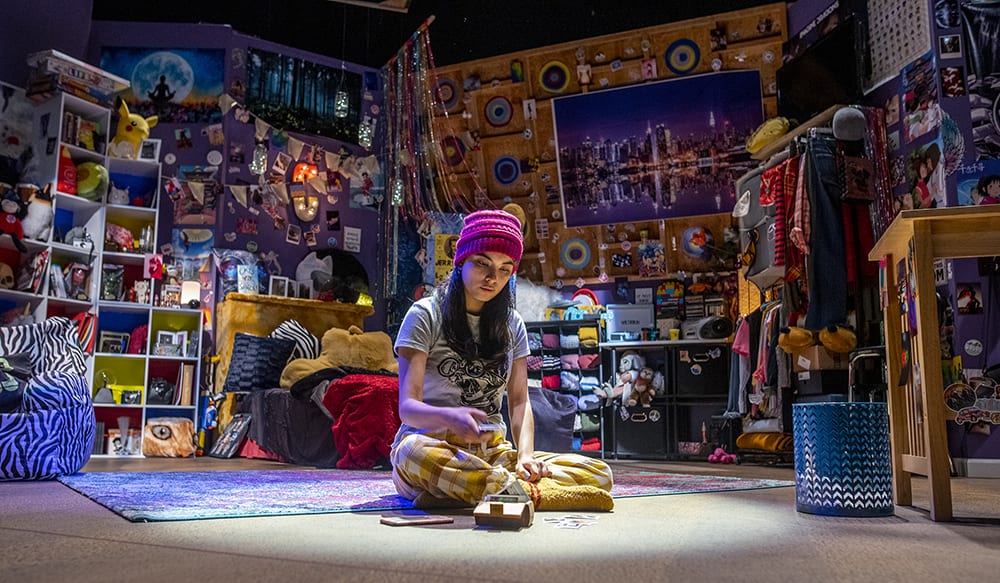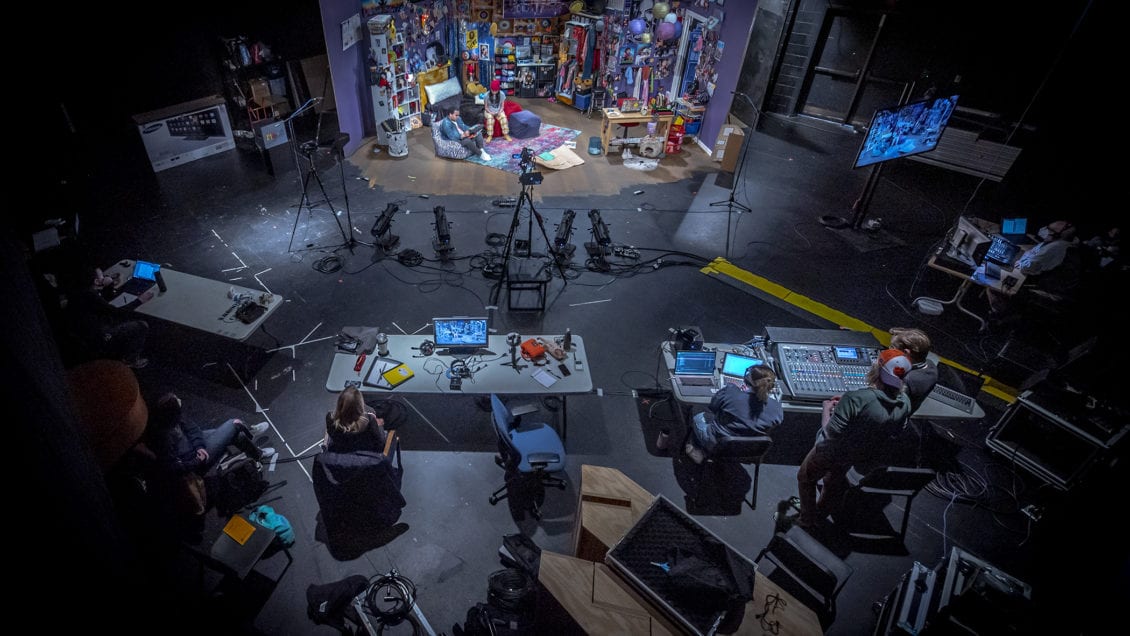The engineering behind a theater production can be more impressive than the show. On stage, buildings can open up like origami, entire villages can rotate, cities hanging by wires can fly in and out of view. Mountains, streams and forests can appear and disappear. Days can turn into nights. Seasons can change.
Theater craftspeople construct these elaborate worlds only to tear them down to a bare stage again when the show closes a few weeks later, and then they start the next build. Pulling off that kind of magic requires a lot of wood, metal and cloth, with a huge potential for waste. In 2013, Clemson University’s theater department set about finding a way to keep their used sets out of the landfill.
Most university and community theaters have facilities for stock storage — this includes flats (flat pieces of wood and cloth scenery painted to look like buildings or other background), platforms, costumes, stock furnishings and set pieces that can be reused. Clemson does not have adequate stock storage, so they cannot keep masses of materials for later use.
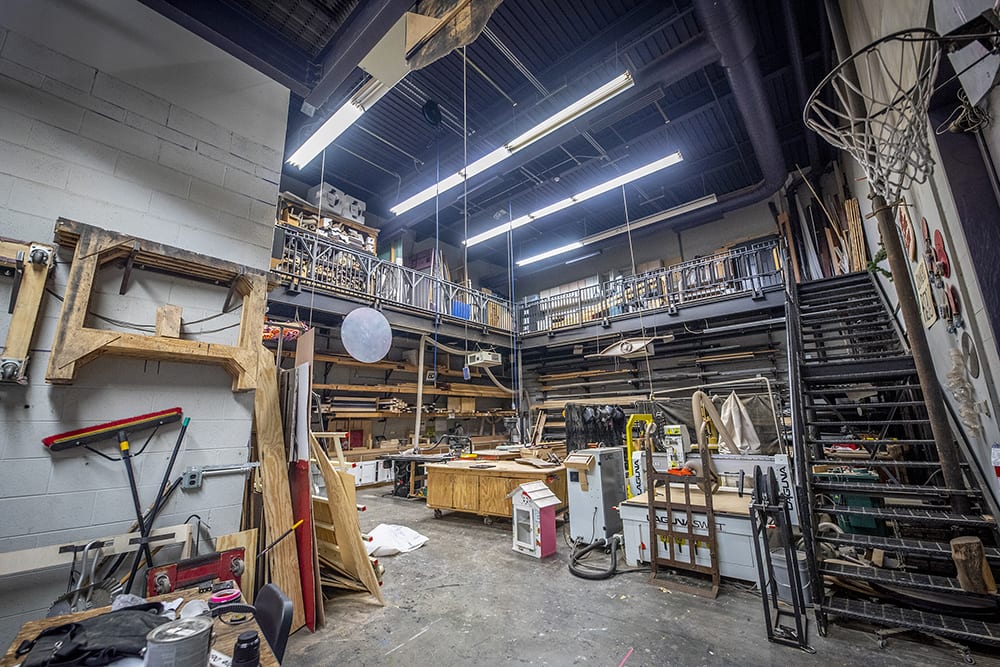
To solve this problem, Director of Theater Matt Leckenbusch reached out to local theaters and schools to see if they’d be interested in sharing resources. Regional theaters like Warehouse Theatre, Centre Stage, Milltown Players and local secondary school theater departments were happy to take in orphaned scenery and repurpose it for their own productions. Now, sets built for Clemson productions “graduate” and move on to new lives instead of into the trash.
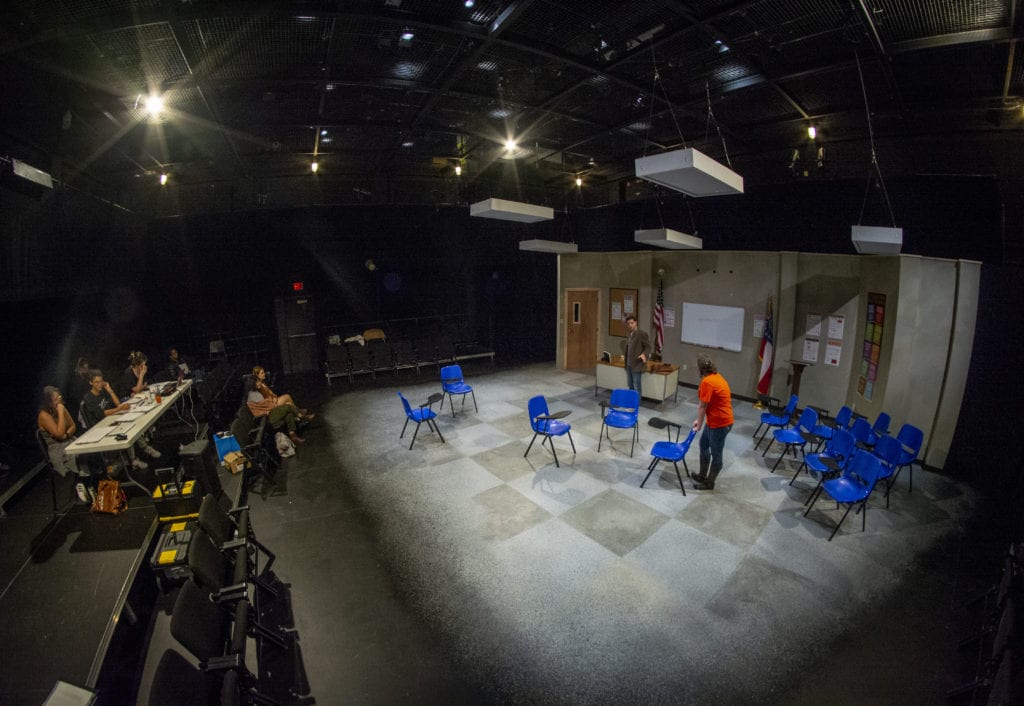
The arrangement is a win-win for Clemson and the Upstate theater community.
2017 Clemson graduate Drew Whitley, who now is a teacher at Daniel High School, took the flats built for last year’s Clemson Players production of Kimberly Belflower’s John Proctor is the Villain to use for his productions of Little Shop of Horrors and Pippin. The Clemson Players recently gave the flats another encore, borrowing them back for the upcoming production of Lauren Gunderson’s I and You.
Associate professor of design Shannon Robert said the obstacles created by the COVID-19 pandemic have actually had a serendipitous effect on the Clemson Theater Department’s sustainability practices. It always sources materials responsibly, but due to a pandemic-related budget cut, she designed the space entirely with repurposed flats in mind.
She said each scene shop so skillfully repurposed the flats, audience members would never know they were looking at the same sets.
Both sets were built with the same pieces, used in different arrangements. We likely would have approached the project differently had it not been for these circumstances, but it was a good experience for our students who learn from building, painting and fabricating these shows. Beginning a process with these stipulations could have limited us in the design approach and collaboration of creating the physical environment, but we pivoted and exercised a different set of problem-solving muscles by creating a new product from existing pieces rather than raw materials.
Shannon Robert, Associate Professor of design
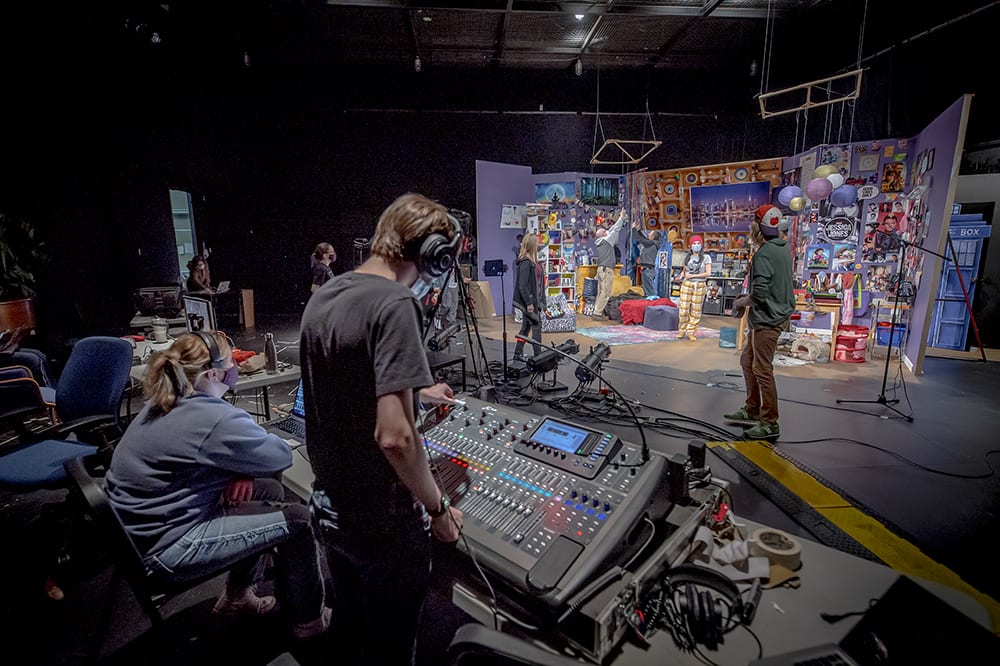
Leckenbusch said Clemson theater’s sustainability practices aren’t limited to what the audience sees on the stage. He goes so far as to save the scene shop’s sawdust and adds it to the University’s mulch and compost facility.
“It’s all about building relationships,” he said. “We’re trying to push really hard to have an exchange with different theaters. For instance, the I and You set includes walls and props borrowed from Daniel High School, West Georgia University and the local theater community. When we have something they need for one of their productions, we return the favor.”
Robert and Leckenbusch are involved with the Broadway Green Alliance (BGA), an industry-wide initiative that educates, motivates and inspires the entire theater community and its patrons to implement environmentally friendlier practices on Broadway and beyond. The BGA has successfully implemented significant sustainability reform at the forefront of the industry since its inception in 2008. The BGA works on the principle that the climate crisis is the result of millions of decisions and it demands action – big and small – from every person.
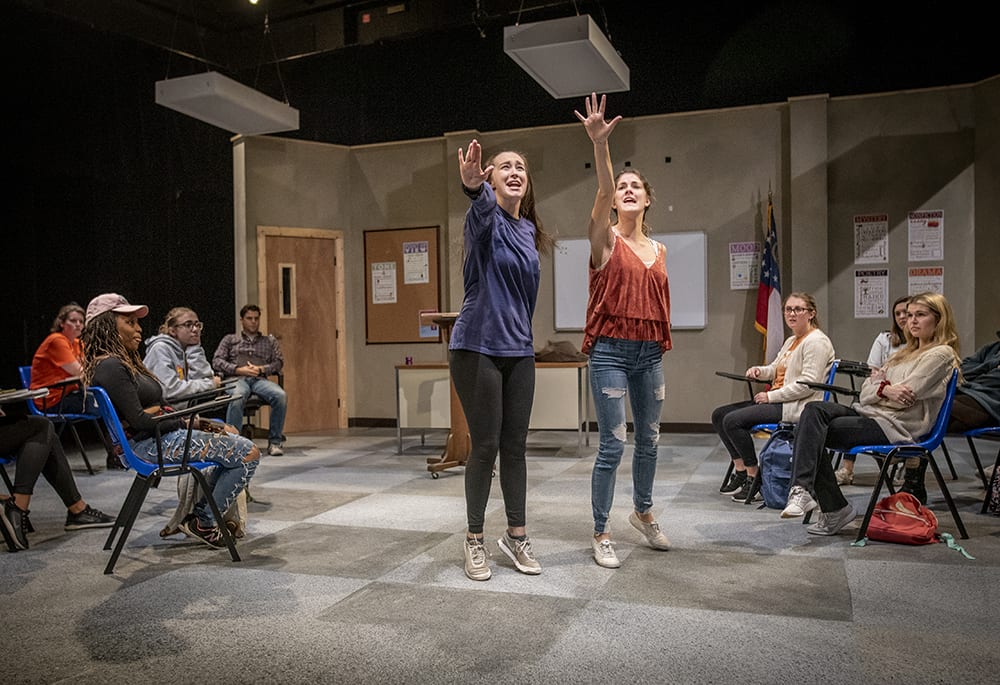
The BGA mission statement reads in part: “Change results from the cumulative effect of our actions, and we can accelerate a creative transition by organizing and inspiring others to play their part.”
Robert said setting an example and fostering good habits in its students is the most important goal of Clemson theater’s sustainability mission.
“We always consider material sourcing, the environment and sustainability when we are making decisions,” said Robert. “Theater and entertainment industries will never be wholly green, but we can continue to green the practice, reusing and repurposing as much material as possible. The environmental ethics and responsibility of sourcing is one of the most important things we teach.”
Alumna Liz Haynes is one shining example that mission is succeeding. Haynes earned degrees in Production Studies in Performing Arts and Modern Languages in 2013 and went on to specialize in green theater design and construction while earning a Master of Fine Arts degree at the University of Nevada Las Vegas. She said her passion for sustainable production practices began in the Brooks Center working on a production of Eurydice.
“I was taking environmental science classes at Clemson at the time and my professors helped me figure out our impact in many ways. I learned that what we did with Eurydice was good, but that we could do so much more,” said Haynes, who is now on the faculty of Vanderbilt University. “Theater is a socially conscious industry that has not yet fully adopted the cause of climate change. The work we do, especially in the scenic part of production, can be detrimental to the planet. I want to be a part of changing that within our industry.”
